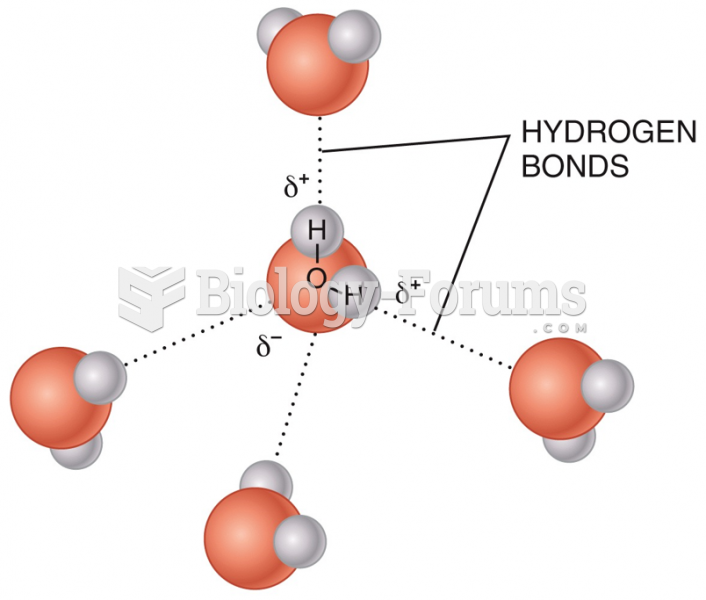|
|
|
Giardia is one of the most common intestinal parasites worldwide, and infects up to 20% of the world population, mostly in poorer countries with inadequate sanitation. Infections are most common in children, though chronic Giardia is more common in adults.
Common abbreviations that cause medication errors include U (unit), mg (milligram), QD (every day), SC (subcutaneous), TIW (three times per week), D/C (discharge or discontinue), HS (at bedtime or "hours of sleep"), cc (cubic centimeters), and AU (each ear).
Medications that are definitely not safe to take when breastfeeding include radioactive drugs, antimetabolites, some cancer (chemotherapy) agents, bromocriptine, ergotamine, methotrexate, and cyclosporine.
Aspirin is the most widely used drug in the world. It has even been recognized as such by the Guinness Book of World Records.
More than 34,000 trademarked medication names and more than 10,000 generic medication names are in use in the United States.
 Daniel Burnham’s Flatiron Building (1902) was one of the first to use steel girders to hold up the b
Daniel Burnham’s Flatiron Building (1902) was one of the first to use steel girders to hold up the b
 Apply draining stroke to forearm. Hold forearm off of the table with one hand. With the other hand, ...
Apply draining stroke to forearm. Hold forearm off of the table with one hand. With the other hand, ...





